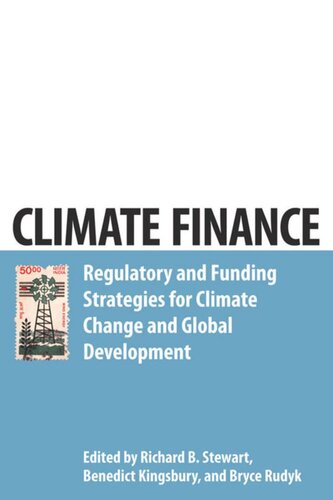

Most ebook files are in PDF format, so you can easily read them using various software such as Foxit Reader or directly on the Google Chrome browser.
Some ebook files are released by publishers in other formats such as .awz, .mobi, .epub, .fb2, etc. You may need to install specific software to read these formats on mobile/PC, such as Calibre.
Please read the tutorial at this link: https://ebookbell.com/faq
We offer FREE conversion to the popular formats you request; however, this may take some time. Therefore, right after payment, please email us, and we will try to provide the service as quickly as possible.
For some exceptional file formats or broken links (if any), please refrain from opening any disputes. Instead, email us first, and we will try to assist within a maximum of 6 hours.
EbookBell Team

4.3
88 reviewsPreventing risks of severe damage from climate change not only requires deep cuts in developed country greenhouse gas emissions, but enormous amounts of public and private investment to limit emissions while promoting green growth in developing countries. While attention has focused on emissions limitations commitments and architectures, the crucial issue of what must be done to mobilize and govern the necessary financial resources has received too little consideration. In Climate Finance, a leading group of policy experts and scholars shows how effective mitigation of climate change will depend on a complex mix of public funds, private investment through carbon markets, and structured incentives that leave room for developing country innovations. This requires sophisticated national and global regulation of cap-and-trade and offset markets, forest and energy policy, international development funding, international trade law, and coordinated tax policy.
Thirty-six targeted policy essays present a succinct overview of the emerging field of climate finance, defining the issues, setting the stakes, and making new and comprehensive proposals for financial, regulatory, and governance mechanisms that will enrich political and policy debate for many years to come. The complex challenges of climate finance will continue to demand fresh insights and creative approaches. The ideas in this volume mark out starting points for essential institutional and policy innovations.